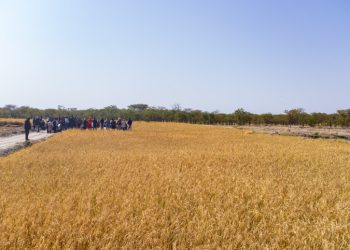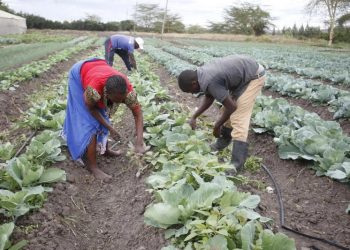
The Namibian Agronomic Board (NAB) forecasts that the country could spend over N$1 billion on maize imports this year to augment a maize shortfall caused by drought.
NAB Chief Executive Officer, Fidelis Mwazi, said Namibia historically produces around 52% of its total maize consumption, averaging roughly 98,000 metric tons annually out of a demand for 178,000 metric tons.
The current drought is expected to drastically reduce domestic production to a mere 33,000 metric tons.
“So that means equivalent if we are to use the last five years’ average it means 145,000 metric tons still need to be imported to meet our average demands in terms of white maize. It’s almost like we need to spend a billion Namibian dollars purchasing this because the current average price of white maize per ton is around N$ 7000,†he said.
“To bridge this gap and meet average consumption levels, Namibia will be forced to import a significant amount of maize at a high cost.â€
Mwazi sai the impact of the drought extends beyond maize.
“Other staple crops, particularly those with high water requirements, are also experiencing significant reductions in yield,†he said.
The NAB CEO added that the board is collaborating with the University of Namibia on seed research and development in order to cultivate drought-resistant maize varieties, specifically adapted to the country’s prevailing climate conditions.
“This research on drought-resistant seeds and varieties is another key aspect of the Namibian Agronomic Board’s (NAB) contribution. By developing crops that can thrive even with reduced rainfall, we aim to ensure some level of harvest regardless of future climate variability,†Mwazi said.
He added that the board is expected to announce a comprehensive support package for farmers in the coming weeks.
“This package is likely to include measures such as subsidized seeds and fertilizers to bolster agricultural production in the event of better rainfall forecasts for the upcoming season.â€
Namibia has declared a state of emergency regarding the current drought, effective 22 May, 2024.











